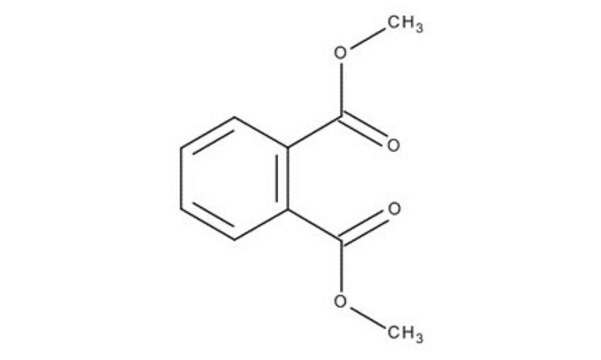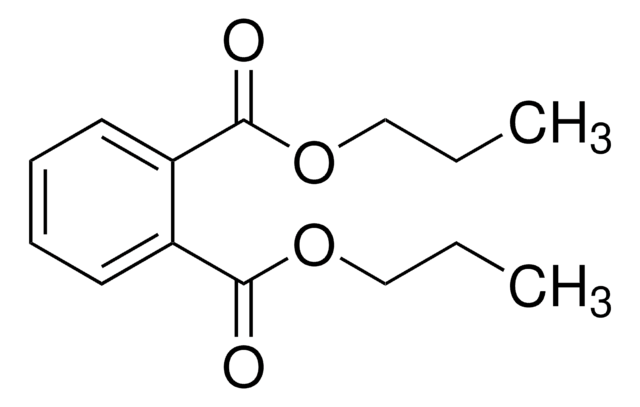W512206
Diethyl phthalate
≥99%
Synonym(s):
Anozol, Diethyl benzene-1,2-dicarboxylate
About This Item
Recommended Products
biological source
synthetic
Quality Level
vapor density
7.66 (vs air)
vapor pressure
1 mmHg ( 100 °C)
Assay
≥99%
form
liquid
autoignition temp.
854 °F
expl. lim.
0.75 %, 187 °F
refractive index
n20/D 1.502 (lit.)
bp
298-299 °C (lit.)
mp
−3 °C (lit.)
density
1.12 g/mL at 25 °C (lit.)
application(s)
flavors and fragrances
Documentation
see Safety & Documentation for available documents
food allergen
no known allergens
Organoleptic
odorless
SMILES string
CCOC(=O)c1ccccc1C(=O)OCC
InChI
1S/C12H14O4/c1-3-15-11(13)9-7-5-6-8-10(9)12(14)16-4-2/h5-8H,3-4H2,1-2H3
InChI key
FLKPEMZONWLCSK-UHFFFAOYSA-N
Looking for similar products? Visit Product Comparison Guide
Related Categories
General description
Disclaimer
Storage Class Code
10 - Combustible liquids
WGK
WGK 2
Flash Point(F)
338.0 °F - closed cup
Flash Point(C)
170 °C - closed cup
Personal Protective Equipment
Choose from one of the most recent versions:
Already Own This Product?
Find documentation for the products that you have recently purchased in the Document Library.
Customers Also Viewed
Our team of scientists has experience in all areas of research including Life Science, Material Science, Chemical Synthesis, Chromatography, Analytical and many others.
Contact Technical Service







